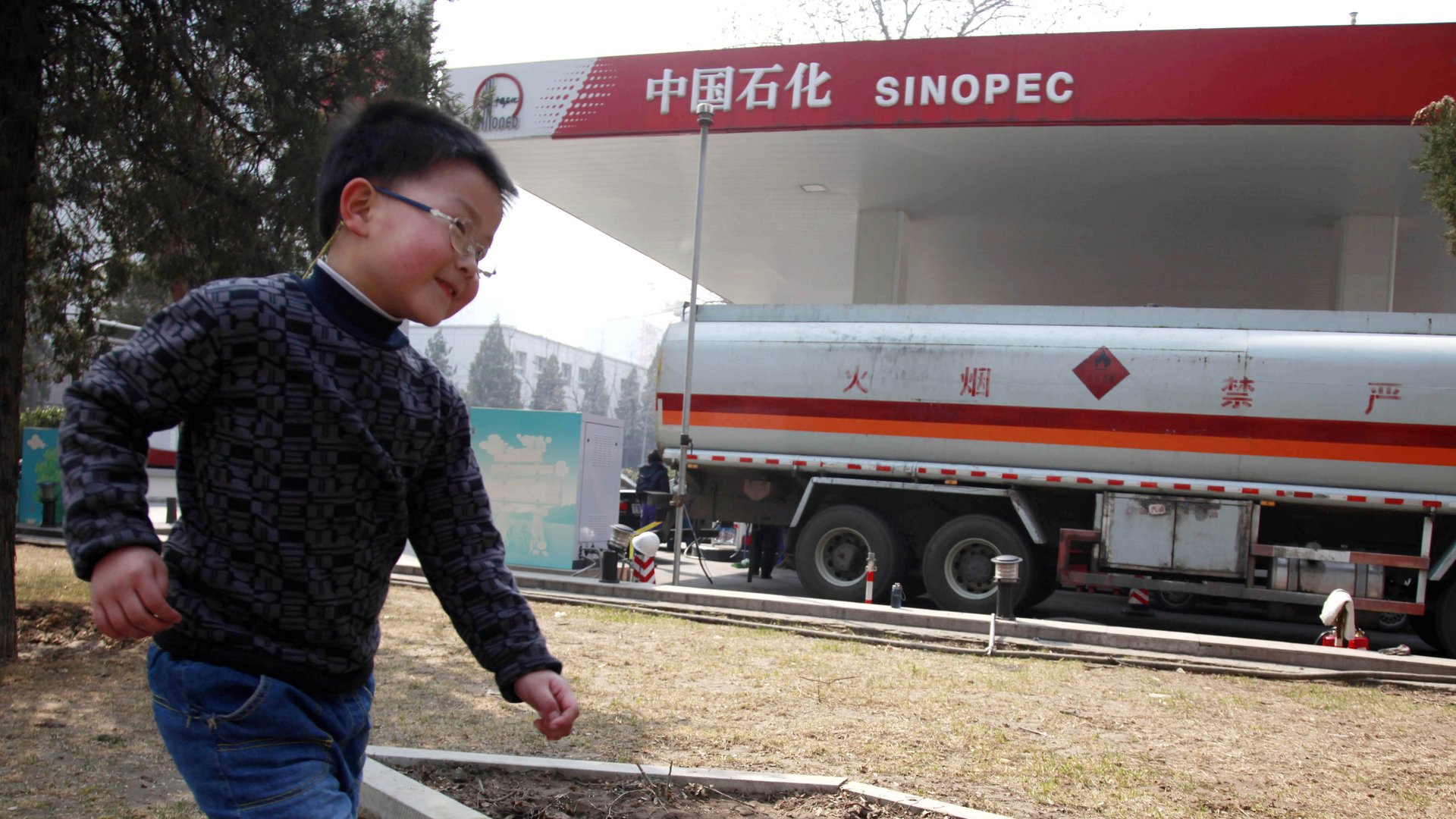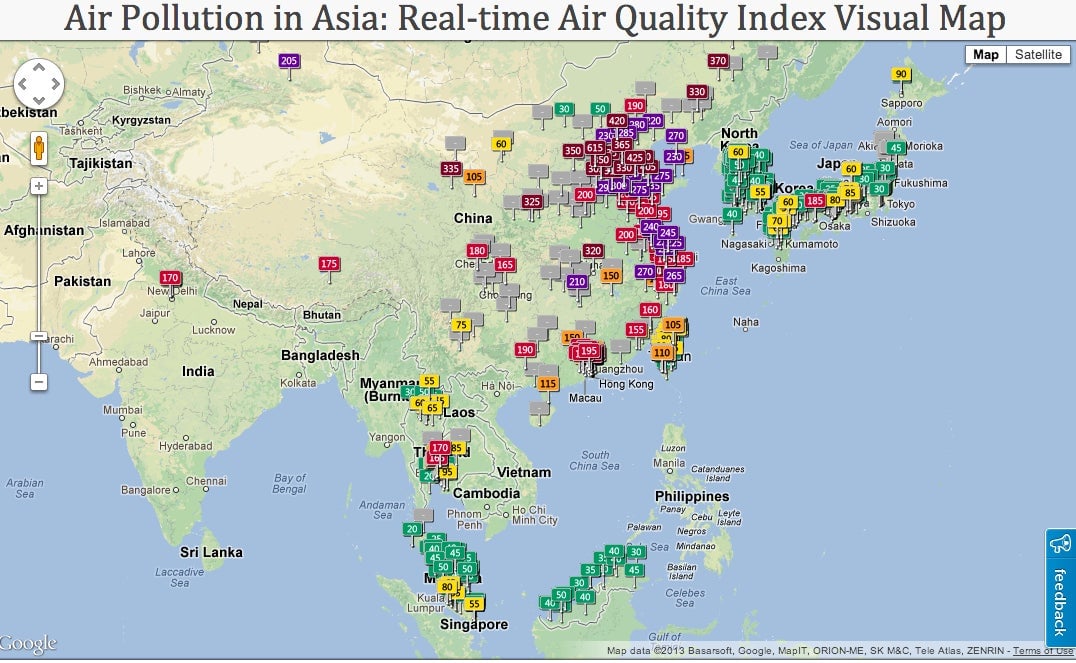Beijing adopts EU-level emissions standard to fix its toxic smog stew
This article has been corrected.


This article has been corrected.
As northern China continues to be subsumed in a toxic soup, the Beijing municipal government has leapt into action, launching aggressive plans to improve air quality, such as scrapping 180,000 old vehicles and, according to draft regulations, limiting the number of vehicles on the roads. While it’s taking other steps as well, Beijing’s focus on cars is crucial because it already has 5.2 million vehicles, a number that’s expected to hit 6 million by 2015 in a city of 20 million people.
But those are largely short-term reforms. Meanwhile, a policy announced just yesterday—the adoption of National Emission Standard V—is getting little media attention, even though it could have a dramatic long-term impact on Beijing’s air quality.
Beijing’s adoption of a higher vehicle tailpipe emission standard will reduce emissions immediately by effectively banning heavy-polluting vehicles from the road. But even more critically, it marks the first in a series of incremental reforms that would dramatically improve air quality in the long term as Beijing’s scrappage policy forces people to replace their cars over time. Were China as a whole to follow Beijing’s lead, the impact would be considerable.
“You’d see maybe a 15% emissions reduction from simply getting those trucks off the road. And then the more stringent [tailpipe] standards that reduce particulates by 80%,” David Vance Wagner, senior researcher at the International Council on Clean Transportation, told Quartz. “Once you reduce emission by 80%, now your scrappage policy is so much more effective because vehicles you’re replacing are 80% cleaner. In the long term, then, you have a roadmap to get to the highest-quality fuel.” Beijing’s new fuel standard, notes Wagner, puts it on the same level as the European Union.
But even though the Beijing municipal government has worked out a supply contract with Sinopec, one of China’s largest state-owned oil refiners,, the city is sandwiched between smog-spewing neighboring provinces. What’s more, heavily-polluting diesel trucks, which make up only 5% of road traffic but emit “something like 60% of total particulates,” according to Wagner, will continue to belch noxious fumes into the air in Beijing as long as they’re licensed elsewhere.

This means addressing the air pollution epidemic will still fall to the national government. Unfortunately, reform at that level faces a colossal bottleneck, clogged by regulatory authority and the interests of powerful state-owned oil refiners. ”One of the fundamental problems is that the environmental regulators don’t have sufficient authority and resources to overcome the forces that are creating the pollution,” said Alex Wang, a Berkeley professor and an expert on China’s environmental law, told The Guardian.
Specifically, China’s national environmental regulator, the Ministry of Environmental Protection, has already twice delayed the rollout of tailpipe emissions standards. But until the government economic agency the National Reform and Development Council either changes the (currently subsidized) price of diesel fuel or until the Ministry of Finance (MOF) agrees to structure a tax subsidy for the higher standard, the refiners have no incentive to upgrade their production to the cleaner fuel type. Though the MOF is scheduled to release a new pricing proposal at some point in the near future, it is currently locked in heated negotiations with the refiners, reports the Wall Street Journal. The results could set China on a course of critical environmental reform—or it could undo the efforts of its capital.
“Beijing deserves a lot of credit for implementing standards approaching equivalence with Western countries…. It’s hard to imagine beijing doing more than they’re doing already,” says ICCT’s Wagner. “But Beijing can’t solve air pollution problem by itself—even though it’s trying its damnedest.”
Correction (Jan. 24, 10:30 a.m. ET): An earlier version of this article incorrectly referred to Beijing’s adoption of new “fuel standards” in the headline and text. The new measure actually involves new emissions standards. David Vance Wagner’s first quote referred to the potential impact of national-level, and not Beijing municipal-level, standards. The article has been corrected to reflect those changes.